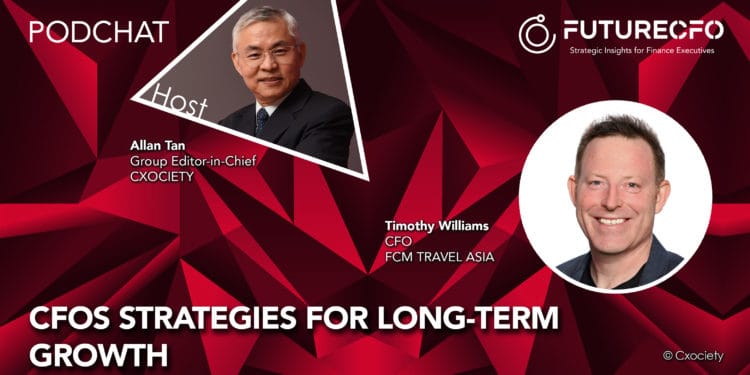The travel industry has been at the hard hit by the pandemic. But with markets around the region and globally beginning to re-open to travellers, perhaps we are nearing the light at the end of the tunnel for the industry.
According to Deloitte’s 2022 travel outlook, corporate travel demand should improve significantly when workers return to offices in greater numbers, enabling more client visits. Even assuming the best possible COVID-19 outcomes, not all road warriors will be eager to return to their pre-pandemic frequency. At the same time, CEOs and CFOs will likely continue to closely scrutinize travel spending and return on investment after operating successfully with so few trips.
One of the topics we’ve been covering with finance leaders around Asia during the pandemic has been the issue of transformation – both whole of business transformation and the digital transformation of finance itself.
Acknowledging that the idea of business transformation is nothing new, Timothy Williams, CFO, FCM Travel in Asia, says those embarking on finance transformation today, are a little bit behind the curve.

Do you need to transform finance today to enable or facilitate a more holistic business transformation?
Timothy Williams: There are components of having a leaner workforce to redeploy the capital that was invested back into the systems. It is the ability to be highly automated and have greater insights to drive the business and better investment decision making.
Do you believe continuous process optimisation is the foundation for sustained competitive advantage?
Timothy Williams: Optimisation is always ongoing and can range from people to liquidity to capital to be more streamlined and to achieve the growth targets. It is a matter of finding the right balance and having a strong focus across the business for sustained competitive advantage - not only in terms of performance but also in taking any leakages out of the business.
What would be one area where you’d like to see a bit more improvement or change altogether?
Timothy Williams: The human emotion. I believe we can do a lot better by taking the emotional aspect out of our decision making and based decisions on facts and good quality insights. I would like to see more integration of our systems to utilize or harness the power of those decisions so that as we push forward with the business, we can provide greater insight and be much more targeted.
How would you rate the finance team's competency in helping drive a successful transformation and is there one area that you think the team struggles most when it comes to this ‘transformation exercise’?
Timothy Williams: My team went through some really tough times but we made sure that we had a long term goal or vision. It is really setting that foundation so that when you grow in size, you are not pressured and continue to focus on the business. For anyone going through this kind of journey, set clear longer-term goals and ensure that you can scale.
If the overarching goal for many businesses, including perhaps those in the travel industry such as yours FCM is to create a sustainable transformation of finance, what needs to happen from your perspective?
Timothy Williams: It depends on how you want to look at the sustainable transformation of finance. Is it about hitting a sustainability target or reducing footprint or the incremental benefit it brings? It is great to have a sustainability strategy, but you have to balance that against your investments and that is where finance plays a key role in helping people understand that and making those decisions.
Where do you expect the focus of finance including yourself will be in 2022?
Timothy Williams: From a finance perspective, our focus is very much on liquidity management, investments and investment strategies and expense management. The nature of the market in the travel industry is quite capital-intensive and so the ability to have a core focus on different clients and how we can manage is key.
What is your advice to other finance leaders in their own respect who are themselves undergoing their own transformation journeys both in 2022 and beyond this year?
Timothy Williams: Every organisation is different, but data analytics plays a massive role. The involvement of both finance stakeholders and data analytics stakeholders is crucial as they go hand in hand. Another piece of advice is to have a long term vision because too often, solving today’s problems does not solve the problems for tomorrow.
Click on the PodChat player and listen to Williams talk about the concept of intercompany accounting in greater detail.
1. Do you need to transform finance to enable (facilitate) a more holistic business transformation?
2. Do you believe that continuous process optimisation is the foundation for sustained competitive advantage?
3. Reviewing your process and technology direction, what one area would you like to see improved/changed upon?
4. How would you rate your finance team’s competency to drive successful transformation? Which one area do you think the team struggles with the most?
5. If the overarching goal is to create a sustainable transformation of finance, what more needs to happen?
6. Where do you expect your focus will be in 2022?
7. What is your advice to other CFOs in their respective transformation journeys in 2022 and beyond?




